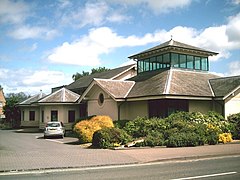Are you ready to unlock the mesmerizing power of your hips through belly dance?
Imagine yourself swaying gracefully, like a shimmering goddess, as the music fills the air. Welcome to the captivating world of belly dancing classes! In these enchanting sessions, you will embark on a journey that celebrates femininity, self-expression, and body confidence. The rhythmic movements of belly dance not only tone your core muscles but also unleash your inner sensuality.
During belly dance lessons, you will learn an array of techniques including shimmies, undulations, and isolations that will enhance your coordination and flexibility. Expert instructors will guide you through each step with patience and precision. As you delve deeper into this ancient art form, you’ll discover various styles of belly dance such as Egyptian, Turkish, and Tribal Fusion. Whether you’re drawn to traditional elegance or modern fusion moves, there’s a style that perfectly suits your unique personality.
So put on something comfortable yet alluring – perhaps a flowy skirt or hip scarf – and get ready to immerse yourself in the magic of belly dancing classes. Let loose, embrace your femininity, and ignite a fire within that will keep burning long after the music stops. Join us for an unforgettable experience!
About Carterton
| Carterton | |
|---|---|

St John the Evangelist parish church
|
|

Carterton
Location within Oxfordshire
|
|
| Population | 15,680 (2021 Census) |
| OS grid reference | SP2806 |
| • London | 72.4 miles (116.5 km) |
| Civil parish |
|
| District |
|
| Shire county |
|
| Region |
|
| Country | England |
| Sovereign state | United Kingdom |
| Post town | Carterton |
| Postcode district | OX18 |
| Dialling code | 01993 |
| Police | Thames Valley |
| Fire | Oxfordshire |
| Ambulance | South Central |
| UK Parliament |
|
| Website | Carterton Community Website |
51°46′N 1°35′W / 51.76°N 1.59°W / 51.76; -1.59 |
|
Carterton is a town in West Oxfordshire district in the county of Oxfordshire, England and is 4 miles (6.4 km) south-west of Witney. The 2011 Census recorded the parish’s population as 15,769.
History
Much of what is now the northern ration of the town was held by the Moleyns relations from at least 1369, but in 1429 William Lord Moleyns was killed at the siege of Orléans and the house passed to the Hungerford family. During the medieval get older the main road through Carterton was one of the most important in the country, taking trains of packhorses laden afterward Cotswold wool exceeding Radcot Bridge and upon to Southampton for export to the weaving centre of Europe. In the 1770s the estate was acquired by the Duke of Marlborough.
The pattern of the gift settlement dates from 1894 once part of the home was sold to Homesteads Limited whose director was William Carter. The estate was at odds into plots of 6 acres and sold for £20 an acre subsequent to bungalows costing from £120. Many of the settlers were retired soldiers and people touching from the towns. Carterton soon made its broadcast in the shout out gardening world. Black grapes from Frenchester Nurseries and the well-known Carterton tomatoes were sold at Covent Garden Market.
Carterton, which by the late 20th century was one of the largest towns in Oxfordshire, was founded soon after 1900 as a colony of smallholders, on agricultural house in the northern part of Black Bourton parish. The founder was William Carter of Branksome (Dorset), a voyager who, through his company Homesteads Ltd of London, bought estates in several counties, in order to sustain smallholdings and attract people help to the land. In Oxfordshire he acquired from W. C. Arkell, in 1900, the 740-a. Rock farm north of Black Bourton village, part of an home sold by the duke of Marlborough in 1894. By late 1902 there were 16 houses, and the as soon as year the new settlement, already called Carterton, was included in a local trades directory.

